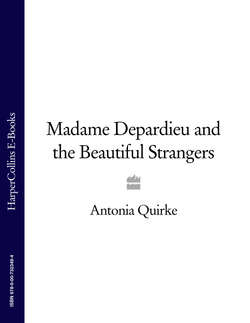Читать книгу Madame Depardieu and the Beautiful Strangers - Antonia Quirke - Страница 10
4
ОглавлениеI got four C's and an E in my GCSEs and failed the rest. But because I spent most of the next year recovering from an operation on my hip I didn't have to go to school and just sat in my room reading. I got four A's at A level. I convalesced in the arms of Antony Sher's Year of the King (about his Richard III for the RSC) and Simon Callow's Being an Actor and Stanislavski's Building a Character, and back to Year of the King, flicking ahead to my favourite bits, which were always about what Sher said to Roger Allam at the Arden Hotel bar. Nothing more comforting than that sense of the extended family which actors thrive in. Year of the King is just about the happiest book I've ever read, the most soothing, which is not what Sher meant at all, but there you go: actors' first neurosis is that acting is just too much fun to be art. I wanted to be in the Arden Hotel bar with Roger Allam.
So I decided I was going to be an actress and auditioned at the Contact Youth Theatre for a play called Don Juan Comes Back From the War and got the part of a bisexual dress designer who dates Don Juan after meeting him in a café in 1920s Vienna, gets dumped, strips and throws plates at his head. I petitioned my mother to hire me a sunbed so I could appear on stage with the tan I felt the part required, but she flatly refused. ‘You are what you are,’ she said.
On stage, I felt I had mainlined into acting. The aperture opened wide and I saw the abyss. ‘Listen, you bastard,’ I had to say, fetching a photo of the Don out of a drawer. ‘Our child is gone. That's right. Gone. Vanished. And I can never have another. Who was it I reminded you of, hmmmmmmm? Go on. Tell me. Who was the bitch?’ I took a needle, poked holes through the photograph's eyes, lashed out furiously at a table, and thinking what the hell, I can do anything picked up a chair and broke its back off by smashing it against the floor, and then leaned up against the wall, panting.
I got a glimpse of what I would be like as an actress: a nightmare. Acting was shocking. It was more than just the power of having other people look at me, or the power of being another person. It was the utter freedom and violence and irresponsibility available. Don't think I'm saying that the performance was any good whatsoever – I just thought: I could easily spend my life in the service of this feeling. I'd come off stage weeping uncontrollably and sink into a kind of post-coital woolliness that lasted until we got to the pub where none of the rest of the stage-school cast would speak to me because, presumably, they all found me completely terrifying.
My family came and were stunned by my noise and rage as I clomped around on the stage balling up my fists like someone who'd been well and truly screwed over. In the car on the way home, my father turned round and said, ‘I'll never believe you again.’ And for a moment I had an instinctive feeling – something more than just the inculcated social instinct that being an actor is a bit silly – that if I kept this up I would be permanently releasing a sort of person that I might not like. When the next play was cast, my mother pointed out the ad in the local paper, but I said I didn't want to do it. I would have liked to have called this book ‘I've Been Marvellous: Seventy Magical Years at the Top’, or simply ‘QUIRKE: The Autobiography’, but I'm not allowed to. I forgot about being an actress and never thought of it again.
